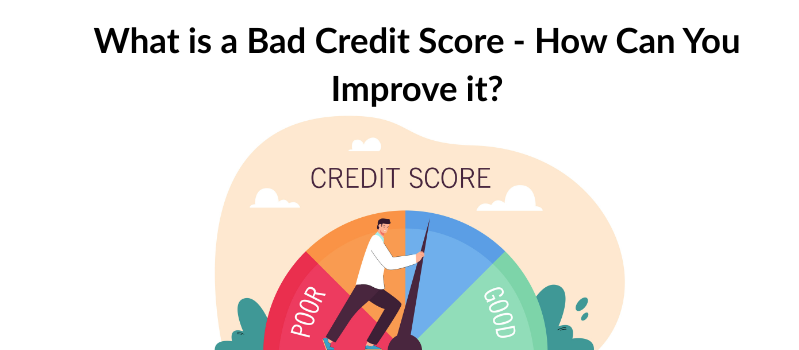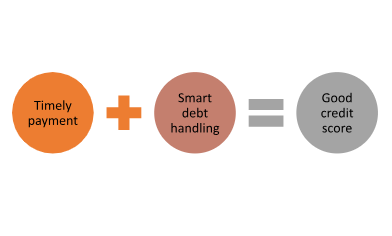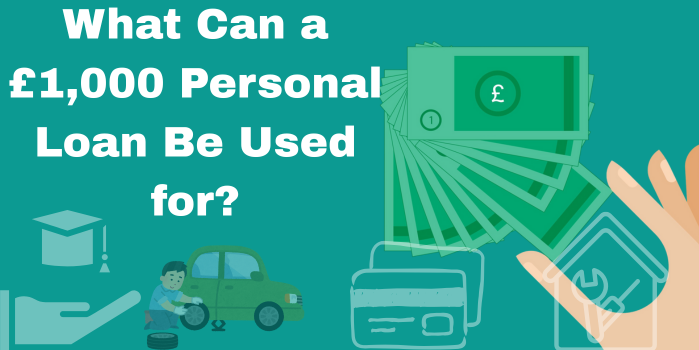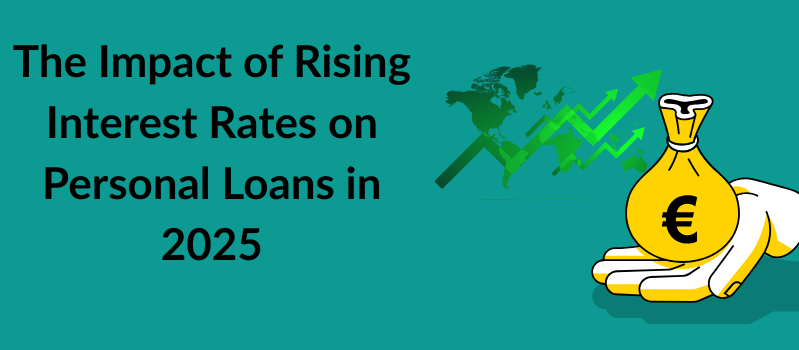
Credit score is the smallest but the most powerful way to represent our financial life. A bad credit score is a score ranging between 561 to 720. As you know, credit rating tells us about our capacity to repay debts. Therefore, if your credit score is between this number, it means that you have a poor payment capacity.
Ways to improve bad credit scores are available

However, the good thing is that there are many effective ways to improve your credit rating. You just need to pay heed to your financial behaviour and money management methods.
In fact, nowadays, several loan solutions are available to help you improve your credit rating. Getting loans for people with bad credit support during a money crisis. Repaying their affordable instalments improves your credit score faster.
Financial experts suggest several smart tips to improve credit rating. Using these ways, one can improve finances in a short time. However, you need to keep working on the ways consistently. Acting carefree again will only invite the same issues.
Let us delve into those tips and learn their significance for a person with a poor credit score.
Review credit reports regularly
It is very important to review your credit report regularly. This is because, many times, wrong information is mentioned in financial records. Credit reference agencies like TransUnion and Experian receive a lot of data from financial institutions on a daily basis.
In that case, mistakes sometimes happen, and wrong financial details may appear in someone's credit report. Therefore, it is important that you review your credit report regularly and correct any errors in time. Incorrect payments, accounts, or balances can be there.
If you find any wrong details, contact the agency immediately. This will also help you in preventing identity theft. Also, try to understand the factors that negatively affect your credit rating.
Review your financial details regularly and dispute the errors found in them. The more you keep records of your financial details, the more your credit rating improves.
Pay your bills and debts on time
There is no doubt that your credit score goes down only when you do not pay your bills and dues on time. No matter how small the debt is. Even if you have a pending debt of £1000 loan, with missed or delayed payments, it shows. Therefore, if you want to improve your credit score, first of all, you have to follow financial discipline.
Start making timely payments as soon as possible. The more you manage your obligations on time, the faster your credit rating will improve. As soon as your credit score improves, you start getting better loan options and investment opportunities. If you have a low credit score, you are a risky applicant for the finance company. Hence, if you apply for any financial product, then you will have to pay higher rates of interest along with bigger installments.
Try to clear your problem as soon as possible. If, for a long time, your bills or loans' pending payment or delayed payment is shown, your credit rating can go down further. The more you pay your financial commitments on time, the faster your credit score will rise.
Avoid closing old accounts
Most people think that they can improve their finances by closing old credit card accounts, but this is not true. The older your credit account is, the longer your credit history appears to be. Credit history has a huge contribution to deciding your credit rating. Therefore, as soon as you close an old account, the length of your payment history is affected.
Try to keep the old accounts. If you have to close them, try to close the latest or newer accounts. If you have any doubts about this, it is better to seek advice from a financial advisor. Your credit score does not depend only on the timely payment of your bills. This rating also depends on your credit history.
The longer your credit history is, the better your credit rating will be. This is why people with these credit histories are often difficult to trace because their payment history is not available.
Don’t max out credit cards
Never max out your credit card to the maximum limit. Your credit rating falls down very fast by maxing out this limit. Using up to 30% of your credit card limit is one option for you. If you use the maximum available balance on your credit card, it determines your credit rating.
Along with that, it also takes care of your credit score. Therefore, try to keep your credit card balance under this limit. Keep credit card limit or usage below 30%. Also, avoid new credit card purchases as long as your usage is under control.
If you have more than one credit card, pay the card with the highest interest rate first. If their payment is more than your repayment capacity, try reducing your debt through debt consolidation.
Maxing out credit card limits is a common problem. It happens due to a lack of self-discipline in financial life. It is your life; if you want stability, avoid acting carelessly.
Become an authorized user
You can become an authorized user of a credit card holder with a good credit rating. By doing this, when you use their credit card and repay it on time, your credit rating improves. This is a popular method to turn a poor credit rating into a good credit score.
However, it is important that you have a relative or a friend who is willing to make you an authorized user. Their positive payment history will boost your career score quickly. However, this can happen only when the primary cardholder is responsible and keeps making the credit card payments on time.
If they delay the payments, your credit rating will be affected even more. Therefore, before working on this method, ensure that you are approaching someone who is financially responsible.
Negotiate with creditors
You can also improve your credit score by negotiating with your lender. There are a couple of ways in which you can negotiate with your lender, including a few different methods. For example, you can work on the option of a ‘pay for delete’ agreement.
This is an option in which, as soon as you meet a due date or make a payment, the creditor deletes the negative entry from your credit report. Apart from this, you can request your creditor to design an affordable repayment plan. A plan that is according to your financial capacity.
Another way is to ask to reduce the settlement amount so that you can easily pay off the balance completely. You can get a rise in your credit score using these ways. You can use this method to settle any debt. Whether it is about small installment loans or credit card debts, everything works in your favour.
Conclusion
All the suggestions given above are real-life suggestions. They help in improving your credit rating in a practical manner. Nowadays, the financial market has become more flexible than ever. Now, a bad credit score is not considered a big issue.
Everyone faces ups and downs in life at some point or the other. This is why, by taking some expert advice, you can easily improve your credit score and convert your poor credit rating into a good credit rating.
However, it is important that you make regular efforts to do this. The more effort you put in, the faster your credit records will show improvement.





